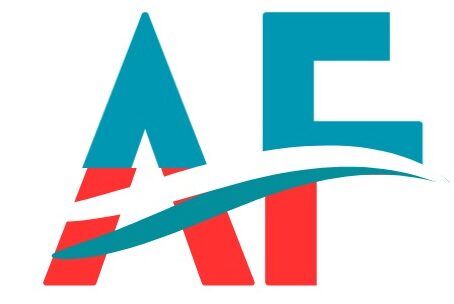The cryptocurrency world has been abuzz with talk of Ethereum Spot ETFs, and for good reason. These investment vehicles are gaining traction and sparking curiosity among investors and enthusiasts alike. But what exactly is an Ethereum Spot ETF, and why should you care? This article delves deep into the concept, its potential impact on the market, and what it means for investors looking to add more diversity to their portfolios.
What is an Ethereum Spot ETF?
An Ethereum Spot ETF (Exchange-Traded Fund) is a type of investment fund that directly holds Ethereum, enabling investors to gain exposure to the cryptocurrency without actually owning it. Unlike traditional ETFs, which might focus on company stocks or bonds, a Spot ETF is backed by the actual asset—in this case, Ethereum. This means that when you invest in an Ethereum Spot ETF, the fund buys and holds the cryptocurrency on your behalf.
The appeal of such a fund is that it offers a more straightforward and regulated way for traditional investors to access the volatile yet potentially lucrative crypto market. You don’t need to manage a digital wallet or worry about securing your private keys, making it a convenient option for those who want to dip their toes into crypto without diving in headfirst.
Why is the Ethereum Spot ETF Significant?
The introduction of an Ethereum Spot ETF could be a major milestone for the cryptocurrency industry. It symbolizes a step toward the mainstream acceptance of Ethereum as a legitimate asset class. The approval and launch of a Spot ETF would likely drive increased liquidity and potentially reduce the price volatility that cryptocurrencies are known for.
Moreover, it would offer a safer investment avenue for institutional investors who have been hesitant to enter the market due to regulatory concerns or the complexities of directly holding crypto assets. With a Spot ETF, these investors can buy shares in the fund, which is monitored and regulated, making it a less risky proposition.
How Does It Differ from Other Ethereum ETFs?
There are various types of Ethereum ETFs already available in the market, such as Ethereum Futures ETFs. These funds are based on Ethereum futures contracts, which are agreements to buy or sell the cryptocurrency at a predetermined price at a future date. While futures-based ETFs provide exposure to Ethereum, they don’t track its price as accurately as a Spot ETF would.
The key difference lies in the asset’s backing: a Spot ETF holds Ethereum directly, whereas a futures ETF holds contracts that speculate on its future price. This direct ownership means that a Spot ETF closely mirrors the actual market price of Ethereum, providing a more precise investment vehicle.
Benefits of an Ethereum Spot ETF
- Regulated Access to Crypto Markets: Investors can gain exposure to Ethereum within a regulated framework, reducing risks associated with holding cryptocurrencies directly.
- No Need for Digital Wallets or Security Management: There’s no requirement to manage private keys or worry about wallet security, which is a significant barrier for many potential investors.
- Lower Risk of Market Manipulation: Because the fund is directly backed by the asset, it’s less prone to speculative bubbles or market manipulation compared to derivatives-based ETFs.
- Enhanced Liquidity: An influx of institutional investment could result in greater liquidity for Ethereum, potentially stabilizing its market.
Challenges and Risks Involved
While the benefits of an Ethereum Spot ETF are numerous, it’s not without its challenges and risks. Regulatory approval is perhaps the most significant hurdle. The Securities and Exchange Commission (SEC) has been reluctant to approve spot-based crypto ETFs due to concerns over market manipulation and investor protection.
Additionally, the cryptocurrency market’s inherent volatility could pose a risk even with the added stability of a regulated ETF. Potential investors should be aware that while ETFs may reduce some risks, they don’t eliminate them entirely. Price fluctuations could still impact the value of the fund’s shares, making it essential for investors to conduct thorough research before diving in.
Potential Impact on Ethereum’s Price
The approval of an Ethereum Spot ETF could have a profound impact on Ethereum’s market price. Historically, the launch of similar financial products has led to increased demand for the underlying asset. This could drive Ethereum’s price higher, especially if institutional investors enter the market in droves.
However, the opposite could also be true. If the ETF sees low adoption or faces regulatory challenges post-launch, it could negatively affect the asset’s price. As such, while there’s significant potential for price appreciation, investors should be prepared for a range of outcomes.
Ethereum Spot ETF vs. Bitcoin Spot ETF: A Comparison
Bitcoin, the first cryptocurrency to have a Spot ETF approved, has set a precedent in the market. However, Ethereum is a different asset with unique characteristics, such as its utility in decentralized applications and smart contracts. This makes an Ethereum Spot ETF distinct from a Bitcoin Spot ETF.
For one, Ethereum’s diverse use cases could attract a broader investor base, potentially leading to higher adoption rates for an Ethereum ETF. On the other hand, Ethereum’s more complex ecosystem might also make it more susceptible to regulatory scrutiny compared to Bitcoin, which is often seen as a more straightforward store of value.
What Should Investors Consider?
If you’re thinking about investing in an Ethereum Spot ETF, it’s crucial to consider several factors:
- Regulatory Landscape: Stay informed about regulatory developments, as they could significantly impact the fund’s viability and market performance.
- Market Conditions: Keep an eye on the broader crypto market, as well as Ethereum’s price movements, to make informed investment decisions.
- Long-Term Perspective: Consider whether you’re looking for short-term gains or long-term exposure to Ethereum’s potential growth.
AFRIPOPULA

